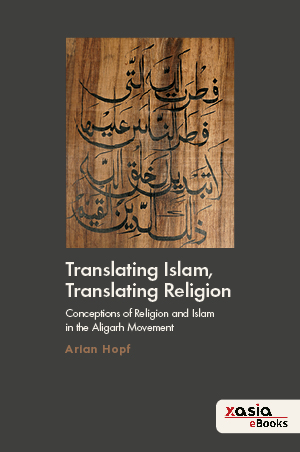
##submission.howToCite##
##submission.license##
##submission.license.cc.by-sa4.footer####submission.identifiers##
##catalog.published##
Translating Islam, Translating Religion
Conceptions of Religion and Islam in the Aligarh Movement
Religion is commonly perceived as an unequivocally defined concept. However, a historic perspective raises questions about this understanding and reveals religion as a concept that developed only in a process of negotiation with other religions. In particular, the 19th century is of special interest in this regard, as the colonial encounter intensifies tremendously in South Asia. The religions of South Asia are scrutinised, categorised, and compared to Christianity by Europeans, which leads to the development of religion as abstractum. Missionary and orientalist critique, as well as modern science, pose to be an entirely new confrontation for the Muslims of South Asia. This book aims to analyse Muslim responses to this confrontation, which imply a translation of Islam as a religion as well as an adaption of the concept of religion itself. The Aligarh Movement is of particular interest in this regard, as it intensively engages in these debates, trying to integrate a re-interpretation of Islam in these discourses.







